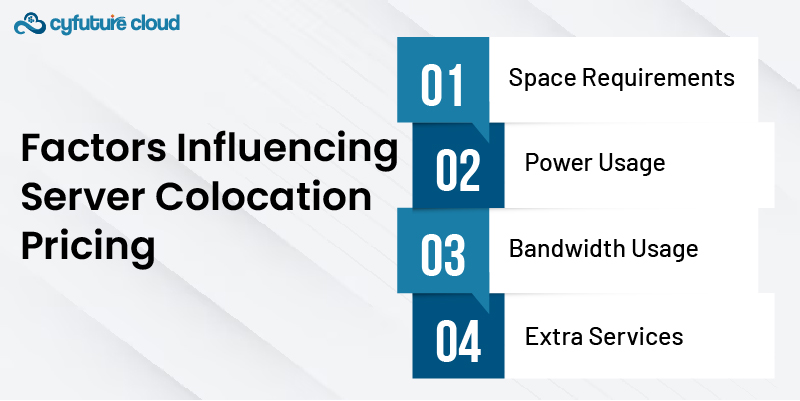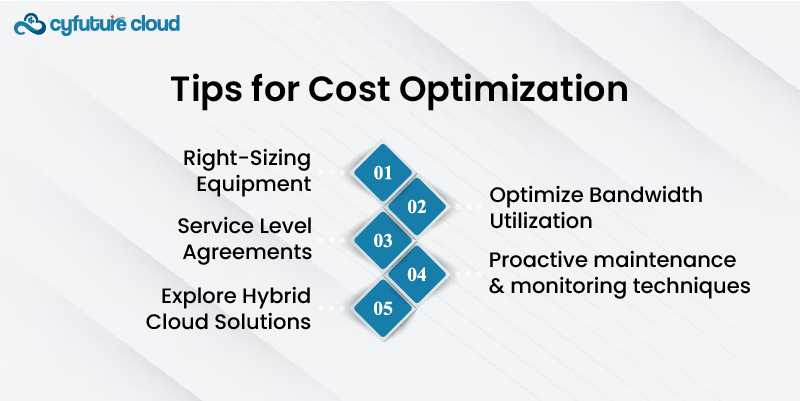 Server
Colocation
Server
Colocation
 CDN
Network
CDN
Network
 Linux Cloud
Hosting
Linux Cloud
Hosting
 VMware Public
Cloud
VMware Public
Cloud
 Multi-Cloud
Hosting
Multi-Cloud
Hosting
 Cloud
Server Hosting
Cloud
Server Hosting
 Kubernetes
Kubernetes
 API Gateway
API Gateway


In the current digital world, most businesses choose to collocate their servers to handle their IT infrastructure. Nevertheless, understanding server colocation prices is a major issue—sometimes even more challenging than accounting itself. I will take this complicated question up point by point to explain it.
Throughout the article, we are trying to explain the server colocation pricing factors and models, which allow businesses to make the right decision for their IT needs. It also helps customers grasp space requirements, power, and bandwidth use and gives them clarity and guidance on all these aspects.
With this knowledge, businesses can walk (through) the world of server (colocation) area confidently so that they can get good value for every penny they invest in the infrastructure as well as meet all operational requirements very well.

Server colocation is a service that data centers provide to businesses, which involves renting physical space within the facility where the businesses can house their own servers and network equipment. In contrast to the on-site dedicated servers methodology, colocation gives organizations the ability to capitalize on the services such as the power, cooling, and security facility that the data center facility runs. This setup though it does not own any infrastructure, nevertheless, gives three strong possibilities, which are reliability, scalability, and cost-effectiveness.
Due to the fact that companies can place their servers in the same place as data centers, they can make use of the backup power supply and the redundant systems implemented by data centers, thus, ensuring that their operations will not be interrupted even if there are power outages or equipment failures. Data centers go together with best-in-class cooling technologies to achieve optimal conditions for servers. This substantially lowers risks related to overheating and hardware damage.
Server colocation also gives enterprises the opportunity to enjoy a superfast internet network and robust system connectivity, which promotes smooth data transmission and communication. The increased connectivity is very important for businesses that depend on online services and the support of high traffic on the network.
For one, colocation is a lot more flexible and scalable for companies that need to avoid buying their own server infrastructure. Serving companies' quickly changing needs is provided with the ability to easily upgrade or scale their server capability while avoiding making large upfront investments in new devices or the adjustment of existing infrastructure requirements.

Several factors contribute to the pricing structure of server colocation services:
Space Requirements: The price factors in the physical space your servers occupy, taking into account the server rack space. Rack, i.e., the standard unit of measurement, rack unit (U), is based on how many are required by the customer, which directly defines the price of a unit.
Power Usage: The main factor affecting the cost of colocation is power usage. Energy consumption, expressed in terms of Kilowatt-hours (kWh), demonstrates the amount of power used by your servers and is what calculates the data centers’ monthly bill.
Bandwidth Usage: There is a need for network connectivity as you cannot access data from the servers remotely. The bandwidth options in colocation providers are different, and the prices are usually based on the monthly data transfer volume.
Extra Services: Data centers could provide extra services, including hardware maintenance, backup plans, and remote assistance. These services may affect costs, but they also offer more comfort and assistance for your infrastructure.
Colocation providers offer different pricing models to accommodate varying business needs:
Per Rack Unit Pricing: This model charges a fixed rate per rack unit occupied by your equipment. It's suitable for businesses with predictable space requirements.
Metered Power Pricing: With this model, you're charged based on actual power consumption, measured using power distribution units (PDUs). It offers flexibility for businesses with fluctuating power needs.
Bundled Pricing: Some providers offer bundled packages that include space, power, and bandwidth at a fixed monthly rate. This simplifies billing and can be cost-effective for businesses requiring a comprehensive solution.

To optimize server colocation pricing, consider the following strategies:
Right-Sizing Equipment: Choose servers and networking gear that meet your requirements without unnecessary overhead. Opt for energy-efficient hardware to reduce power consumption.
Optimize Bandwidth utilization: Keep an eye on and control your utilization of bandwidth to stay under allocated restrictions. Use content delivery networks (CDNs) and caching to cut down on bandwidth use.
Service Level Agreements (SLAs) should be negotiated. Talk about SLAs with your colocation provider to make sure that service levels meet your demands. Based on support offers and uptime assurances, negotiate conditions and prices.
Proactive maintenance and monitoring techniques should be used on a regular basis to find and fix problems before they get out of hand. This can reduce lost time and related expenses.
Explore Hybrid Cloud Solutions: Consider leveraging hybrid cloud architectures to augment your colocation setup. Offloading non-critical workloads to the cloud can optimize resource utilization and reduce overall costs.
Decoupling server colocation pricing depends essentially on knowing the cost drivers and the diverse pricing structures. By evaluating your business needs and discussing better terms and cost optimization strategies with your service providers, you can mitigate data center expenses without hampering your outsourcing hosting benefits. Remember these important points while you are evaluating the server colocation options for your organization's IT needs.

Let’s talk about the future, and make it happen!
By continuing to use and navigate this website, you are agreeing to the use of cookies.
Find out more


